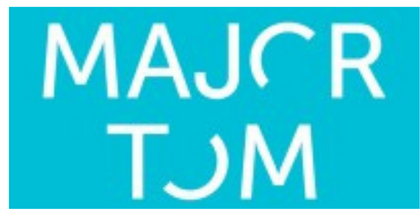
Top Recuriting Agencies
The global staffing and recruitment market was valued at USD 757.56 billion in 2023, with a projected CAGR of 13.1% to reach USD 2,031.34 billion by 2031. (Source: The Insight Partners)
Recruiting agencies, also known as staffing agencies or employment agencies, Recruiting agencies are invaluable partners for businesses and job seekers alike. They offer a streamlined approach to navigating the complex job market. For companies, these agencies serve as expert talent scouts, pre-screening candidates to save significant time and resources in the hiring process. They provide access to a deep, specialized pool of talent, often including passive job seekers who aren’t actively looking for new opportunities. This enables businesses to find the ideal match for their specific needs, from entry-level to executive roles. For job seekers, recruiters provide exclusive access to unadvertised job openings and expert guidance on everything from resume building to salary negotiation. This growth highlights the increasing reliance on agencies to connect skilled talent with the right opportunities.
List of the Best Recuriting Agencies

-
Employees: 51 to 200
-
Min. Project amount: $ 25000
-
Country: USA

Major Tom agency
-
Employees: 51 to 200
-
Min. Project amount: $ 25000
-
Country: USA

RL Computing
-
Employees: 2 to 10
-
Min. Project amount: $ 25000
-
Country: USA

On Board Experiential
-
Employees: 51 to 200
-
Min. Project amount: $ 25000
-
Country: USA

Lime Creative
-
Employees: 2 to 10
-
Min. Project amount: $ 25000
-
Country: USA

Sharp Think
-
Employees: 11 to 50
-
Min. Project amount: $ 25000
-
Country: USA

420MEDIA
-
Employees: 2 to 10
-
Min. Project amount: $ 25000
-
Country: USA

QUE Productions
-
Employees: 2 to 10
-
Min. Project amount: $ 25000
-
Country: USA

The Sevenfold Studio
-
Min. Project amount: $ 25
-
Country: USA

Blackbird Digital
-
Employees: 2 to 10
-
Min. Project amount: $25000
-
Country: U.S.A
1. What is Recuriting?
Recruiting agencies typically have a team of recruiters who specialize in different industries or job roles. They work closely with companies to understand their staffing needs, and they also actively seek out potential job candidates through various channels such as online job boards, social media, and referrals.
Once a recruiter identifies a potential candidate, they typically conduct a pre-screening interview to determine the candidate’s suitability for the position. They may also conduct background checks, verify references, and assess the candidate’s skills and qualifications.
If a candidate is deemed suitable for a job opening, the recruiting agency will present the candidate’s profile to the employer for consideration. If the employer decides to move forward with the candidate, the recruiting agency will facilitate the hiring process and negotiate employment terms on behalf of the employer.
Recruiting agencies may also provide temporary staffing services, which allow employers to fill short-term staffing needs without having to go through a full hiring process. Additionally, some recruiting agencies offer training and development programs to help job seekers improve their skills and increase their employability.
2. What Do Recuriting Companies Do?
Recruiting agencies, also known as staffing agencies or employment agencies, help both job seekers and employers find suitable matches for their employment needs. Here are some of the main things that recruiting agencies do:
Job postings: Recruiting agencies post job openings on behalf of their clients, which can include large corporations, small businesses, and non-profit organizations. They may post job listings on their own website or on other job boards.
Candidate sourcing: Recruiting agencies actively search for potential job candidates through various channels such as online job boards, social media, and referrals. They may also attend job fairs and other networking events to find new candidates.
Pre-screening and interviewing: Once a potential candidate is identified, recruiting agencies typically conduct a pre-screening interview to assess their suitability for the position. They may also conduct background checks, verify references, and assess the candidate’s skills and qualifications.
Candidate presentation: If a candidate is deemed suitable for a job opening, the recruiting agency will present the candidate’s profile to the employer for consideration. They may also provide additional information about the candidate, such as their salary expectations and availability.
Hiring process facilitation: If the employer decides to move forward with a candidate, the recruiting agency will facilitate the hiring process and negotiate employment terms on behalf of the employer. This can include salary negotiation, benefits packages, and start dates.
Temporary staffing: Recruiting agencies may also provide temporary staffing services, which allow employers to fill short-term staffing needs without having to go through a full hiring process.
Overall, recruiting agencies help job seekers and employers navigate the hiring process, from initial job postings to final employment agreements.
3. How Much Do Recuriting Companies Charge For Their Services?
Recruiting agencies typically charge a fee to employers for their services. This fee is typically a percentage of the candidate’s first-year salary, and it can vary depending on the type of job and industry.
The exact percentage can range from around 10% to 25% of the candidate’s first-year salary, although some recruiting agencies may charge more or less depending on the specific circumstances of the job opening.
It’s important to note that job seekers generally do not have to pay a fee to recruit agencies for their services. However, some recruiting agencies may offer additional services to job seekers, such as resume writing or interview coaching, for an additional fee.
It’s also worth noting that some recruiting agencies may have different fee structures depending on the type of service they provide. For example, some agencies may charge a flat fee for temporary staffing services, while others may charge a percentage of the hourly rate paid to the temporary employee.
Overall, the fees charged by recruiting agencies can vary widely depending on a variety of factors, so it’s important to discuss these fees upfront with the agency to ensure that you understand the costs involved.
4. Why Hire Recuriting Company?
There are many reasons why companies choose to hire recruiting agencies, also known as staffing agencies or employment agencies, to assist with their hiring needs. Here are some of the key benefits of working with a recruiting agency:
Access to a larger pool of candidates: Recruiting agencies typically have a larger network of job candidates than individual companies do. This means that they can provide access to a wider range of candidates, including passive job seekers who may not be actively looking for work but would be open to a new opportunity.
Expertise in recruiting: Recruiting agencies specialize in the hiring process, which means that they have a deep understanding of how to attract and assess candidates. They have expertise in areas such as candidate sourcing, interviewing, and screening, which can help to streamline the hiring process.
Time and cost savings: Recruiting agencies can help to save companies time and money by handling many aspects of the hiring process on their behalf. This can include tasks such as posting job ads, pre-screening candidates, and negotiating job offers.
Flexibility: Recruiting agencies can provide flexible staffing solutions to meet the changing needs of a business. This can include temporary staffing solutions for short-term projects or seasonal fluctuations in demand, as well as permanent staffing solutions for long-term hiring needs.
Reduced risk: By outsourcing the hiring process to a recruiting agency, companies can reduce their risk of making a bad hire. Recruiting agencies have expertise in assessing candidates and can help to ensure that only the most qualified and suitable candidates are presented for consideration.
Overall, hiring a recruiting agency can provide many benefits to companies, including access to a larger pool of candidates, expertise in recruiting, time and cost savings, flexibility, and reduced risk of making a bad hire.



